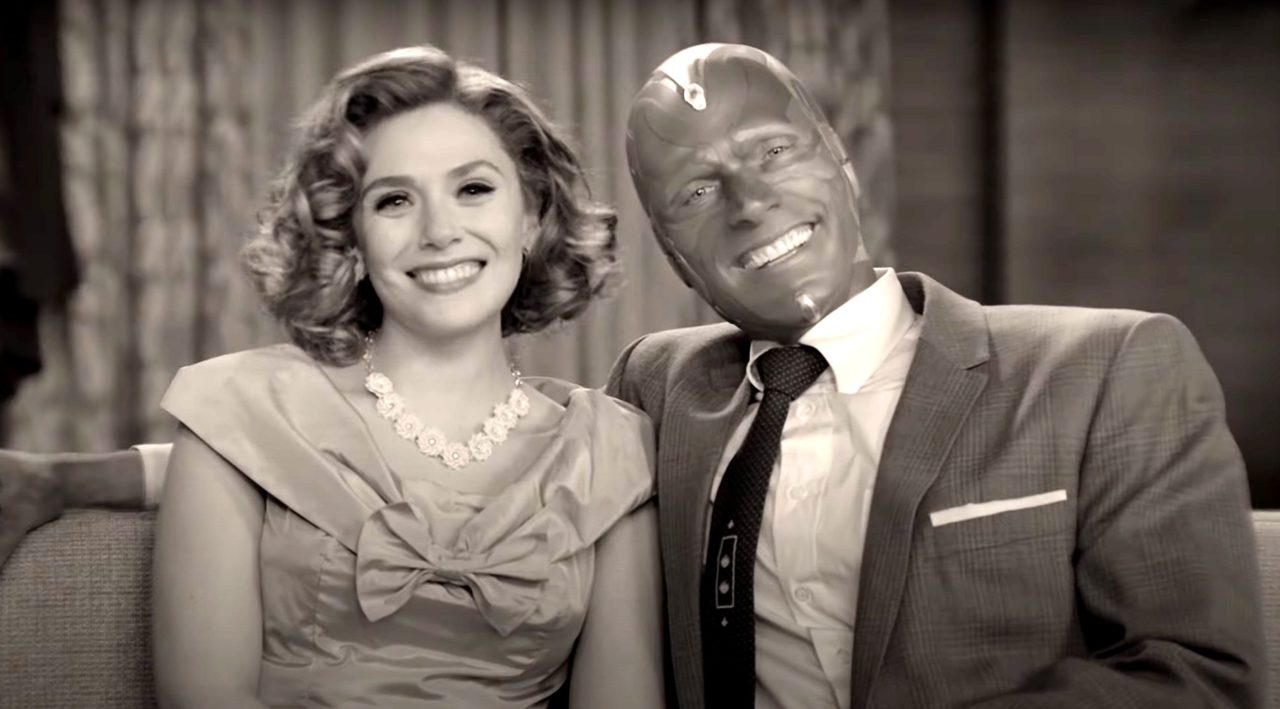Photo: Marvel Studios
WARNING: The following contains spoilers and/or possible spoilers for Marvel’s WandaVision on Disney+.
_____
I get Wanda Maximoff.
At least, I get what I think I know about her.
I get what grief does to your world.
In the seconds after my father died suddenly and many times in the nearly seven years since, I’ve had a similar thought: I’d do anything to change this. Literally anything.
The moment I took the phone call from my youngest brother and heard in his voice a quiver it’s never had before as he told me the news of my father’s death, I fell to my knees on our front yard and cried into the grass while my reality evaporated and all the air was sucked from my lungs.
And I remember saying the singular word Wanda speaks in the series’ second episode as a man in a beekeeper uniform emerges from beneath a sewer grate and looks directly at her and confronts her with reality:
“No.”
I heard that very word leave my lips as a flood of questions swirled inside my head. That word was desperate plea and fruitless prayer, it was a beggar’s bargain I’d have gladly made with the devil were he present.
“No.”
I wanted to stop this brutal nightmare and rewind it all.
I wanted a different reality than the one I was left with.
I wanted to feel about living the way I felt just a few seconds earlier.
Unfortunately, since not imbued with some latent superhuman gene or gifted with a cosmic stone-generated power of altering the present—I was simply doomed to feel like hell and not be able to escape it, to have to face the world as it now was: less beautiful, less hopeful, and less loving than it was when my father was here.
Hearing Wanda’s “no,” and watching her strain and fight and work to hold herself and the world around her together, broke open the grief again for me. I saw my present self and I saw my former self.
That’s the thing you learn as you grieve deeply: when you lose someone you love, you lose a bit of you.
You don’t simply lose yourself metaphorically or symbolically, but you have stolen away the part of your story that only they knew.
You lose the shared memories you curated.
You lose the you who you were when you were with them.
A part of you dies too, and so you want the person you love returned to you because you want that piece of your identity back—and you know you can’t have it.
I don’t know how this series will evolve and what it will reveal about Wanda and about what she’s doing or what is being done to her, but I already find affinity with her because I recognize the world that grief changes for us.
I know her frantic desperation to go backward.
I know the treasures I’d give up to have more time with my father.
I know the attrition of joy that comes when someone is taken from you.
I know how hard your mind fights to find another narrative than the one in front of you.
Many times over the past six years I’ve had to contend with a sobering realization: life will never be as good as it was when my father was here.
It will never be that complete.
I’ll never feel that rightness again.
That wholeness can simply not return.
My world now is a less-than substitute of the one where my father was alive.
And being a mere mortal who has no say in the when and where and how of reality, all I can do is be here in this world as it is, be who I am in this altered story that I wish I could rewrite but know I cannot.
We who are mourning in this timeline can only work with the reality handed to us and do the best we can to find gratitude in having once had someone worth missing.
Here’s to a planet filled with ordinary grieving people living in a reality now remade by the losses we’ve sustained.




